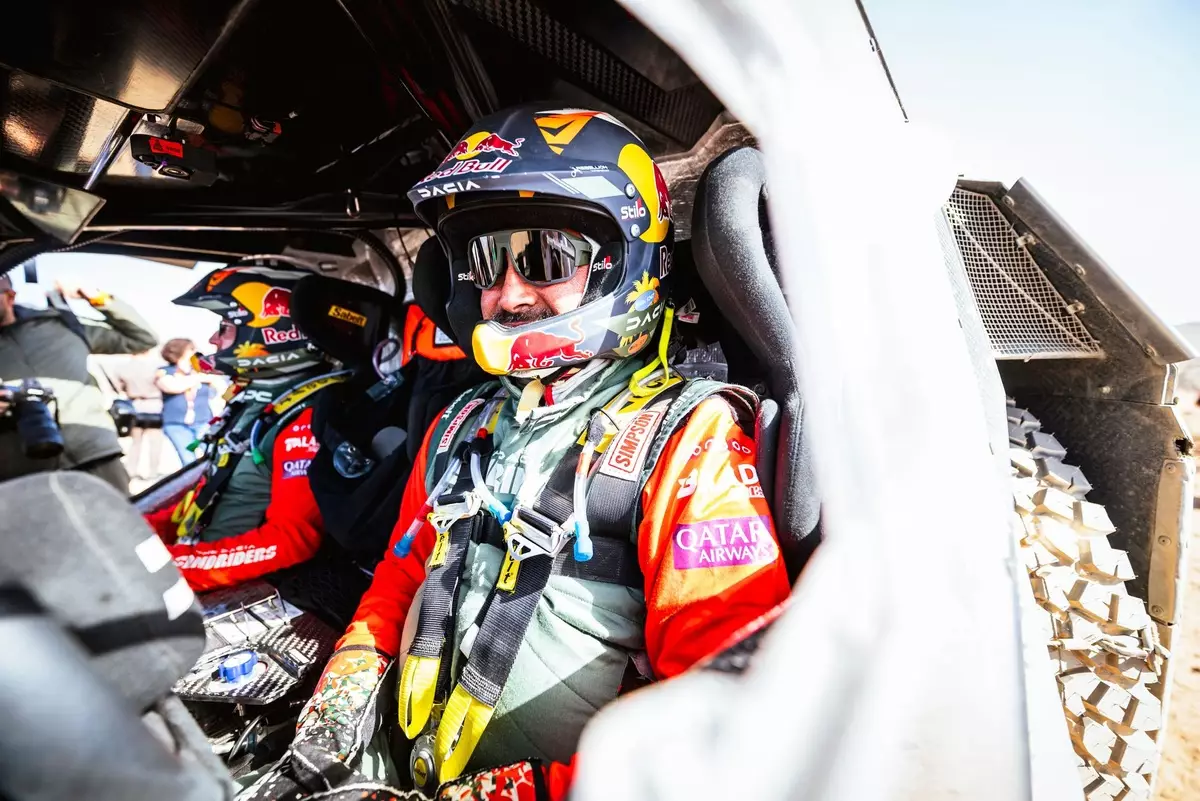The Dakar Rally, known for its grueling conditions and high-stakes racing, has once again found itself at the epicenter of controversy. Dacia driver Nasser Al-Attiyah has recently vocalized his discontent with the FIA’s decision to bar famed driver Carlos Sainz Sr. from continuing his run in the 2025 Dakar Rally. This decision arose after Sainz Sr. and fellow competitor Sebastien Loeb encountered significant accidents that compromised their vehicle’s roll cages. Such a turn of events led to the disqualification of two frontrunners from the rally, prompting Al-Attiyah to urge a reevaluation of the protocols surrounding driver safety.
In their announcement, the FIA cited safety concerns as the primary reasoning behind preventing Sainz Sr. from continuing his participation in the rally. The organization maintained that unknown factors during a potential subsequent accident could jeopardize the drivers’ safety if the roll cages were not adequately restored. Furthermore, the FIA stated that permitting manufacturers to conduct repairs during the competitive stage of the rally would undermine the spirit of the sport. However, Al-Attiyah’s criticisms reflect a broader sentiment within the motorsport community—can the balance between safety and competitive integrity be maintained without stifling the spirit of off-road racing?
As he elaborated on his frustrations, Al-Attiyah emphasized the need for clear and equitable rules in the sport. He questioned why Sainz Sr.’s situation led to a definitive conclusion rather than an opportunity for repair, stating that the decision appeared arbitrary. By emphasizing that this was not Formula 1, he pointed out the unique nature of cross-country rallying, which thrives on resilience and adaptability. In his view, the decision did not just eliminate rivals; it dulled the competitive essence intrinsic to these challenging terrains.
The issues didn’t stop with Sainz Sr.’s disqualification. Al-Attiyah faced his own controversy during Stage 5, when he received a ten-minute penalty after losing a spare wheel. His irritation was palpable as he articulated the perceived injustice surrounding the decision. Al-Attiyah argued that losing a tire does not warrant such a severe punishment, especially when his actions did not stem from negligence or misconduct. He expressed his determination to address the penalty directly with the FIA president, demonstrating his commitment to advocacy for fairness within the sport.
His frustrations reveal a significant tension that exists in motorsports: the balance between penalty enforcement for negligence and the inherent unpredictability of racing. Al-Attiyah’s plea for fairness suggests that there is an urgent need for the FIA to cultivate clearer communication and guidelines, particularly in relation to incidents that can significantly affect the race outcome.
Currently sitting fourth overall, 30 minutes behind leading competitor Henk Lategan, Al-Attiyah’s situation remains precarious as six stages of the rally lie ahead. Yet his spirit remains unyielded. With a determined focus on reclaiming his standing, Al-Attiyah expressed confidence in his ability to close the gap and potentially secure another victory. His aspirations are not just for personal accolades but also an opportunity to inch closer to the legendary Stephane Peterhansel’s record of eight wins in the cars category.
Al-Attiyah’s reflection on the difficulties of competitive racing underscores the unpredictability that characterizes high-stakes events like the Dakar Rally. The psychological pressure to perform amidst potential pitfalls is omnipresent, yet he remains resolute. He acknowledges that with just minutes separating him from his fellow competitors, any misstep could be devastating.
Nasser Al-Attiyah’s recent statements encapsulate a critical moment in the history of the Dakar Rally. As debates over safety regulations and competitive integrity unfold, the essence of what it means to be part of such an extreme sport is under scrutiny. Clearly, the rally is far more than a test of speed; it is a testament to endurance, strategic thinking, and resilience. Al-Attiyah’s call for clearer rules and fair adjudication resonates deeply with both drivers and fans alike. Only time will tell how these controversies will shape the future of rallying, but one thing is certain—the spirit of competition and the quest for victory will continue to drive these formidable athletes forward.


Leave a Reply